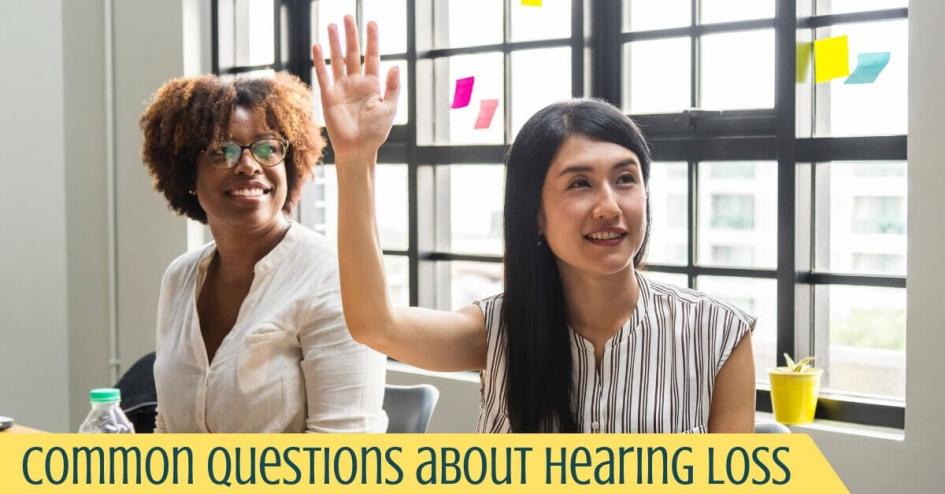
Common Questions About Hearing Loss
Oct 12, 2018
Right now, around 11 million people in the UK are living with hearing loss. Out of those individuals, around 900,000 have a level of hearing damage that is severe or profound. This is by no means an uncommon condition, but how much does the average person know about hearing loss and hearing aids? Here are some answers to a few common questions.
Q: What are the primary causes of hearing loss, and how can I avoid it?
For many individuals, a gradual decline in hearing is a natural part of the aging process. As we age, the delicate hair cells in the inner ear deteriorate, and the result is the loss of certain sound frequencies. Though this type of hearing loss cannot be completely prevented, staying physically active and eating a healthy diet have been shown to play a beneficial role in protecting our long-term hearing health. The other major factor that damages our ears over time is exposure to loud sounds. Prolonged loud noise--or sudden explosive noises--can irreparably damage the inner ear. This type of hearing loss can be prevented by wearing hearing protection when in the vicinity of loud sounds. This includes loud music at concerts and sporting events, firearms, power tools, motorcycles and any heavy equipment. If you are regularly exposed to high-volume sounds in the workplace, you should take extra care to protect your ears with custom-fitted earplugs or earmuffs. Though it is less common, hearing loss can also result from playing music too loudly while using earbud headphones. As a rule, if someone an arm’s length away from you needs to shout to be heard, your volume is turned up too high, and this can result in lasting hearing damage.Q: Does hearing loss only affect older people?
There are currently around 50,000 children in the UK with hearing loss; half of those children were born with hearing loss while the other half lose their hearing during childhood. Although there is a larger percentage of people over 60 who have hearing loss, this condition can affect anyone in any age group.Q: Will hearing loss impact my health in other ways if I don’t treat it?
Unfortunately, yes. Studies have revealed that people with untreated hearing loss have a tendency to become more withdrawn from their social network, and this isolation can lead to depression. Individuals with untreated hearing loss are also at a greater risk of developing dementia. The good news is that research also points to the ability of hearing aids to mitigate these health risks.Q: When I first put my hearing aids in, will I start hearing better immediately?
Unlike glasses and their ability to restore crystal clear vision, hearing aids cannot bring back perfect hearing. However, they can make it much easier to hear and carry on conversations, reducing stress and making life more enjoyable. Do keep in mind that there is an initial adjustment period for new hearing aids, usually between one to three weeks, while your brain and ears get used to the improved sound signals coming through your devices. Be patient with yourself during this period of adjustment, but also be consistent about wearing your hearing instruments. Most people are very happy with their hearing aids after one to three weeks.Q: If I only wear my hearing aids for 1-2 hours a day, will they still help?
Yes and no. If you only wear your hearing devices occasionally, they will still amplify sound as they are meant to, but your brain and ears will not be accustomed to processing that sound. Hearing aids are actually intended for all-day, everyday use (10-12 hours is best). This prolonged use will help your brain and ears to adapt to your hearing devices, resulting in much greater clarity and listening ease in your daily interactions.Q: Where should I purchase a set of hearing aids?
Although you may think that buying a set of hearing aids online is the easier and cheaper option, the truth is that one size doesn’t fit all when it comes to hearing loss treatment. If you have decided that you could benefit from hearing devices, the best course of action is to make an appointment with us at House of Hearing. Our team will be able to thoroughly assess your level of hearing loss and help you choose the hearing aids that are best-suited to your lifestyle, budget, and hearing needs. We can also make sure that your hearing devices fit your ears comfortably. Remember--you’re likely going to spend countless hours wearing them, so taking the time to make sure your new hearing aids fit and fulfill your hearing needs is a worthwhile investment.Our Clinics
All House of Hearing clinics are in town centre locations and accessible to public transport and parking. Home visits also available if mobility is an issue.


.png)
.png)
.png)

.png)
